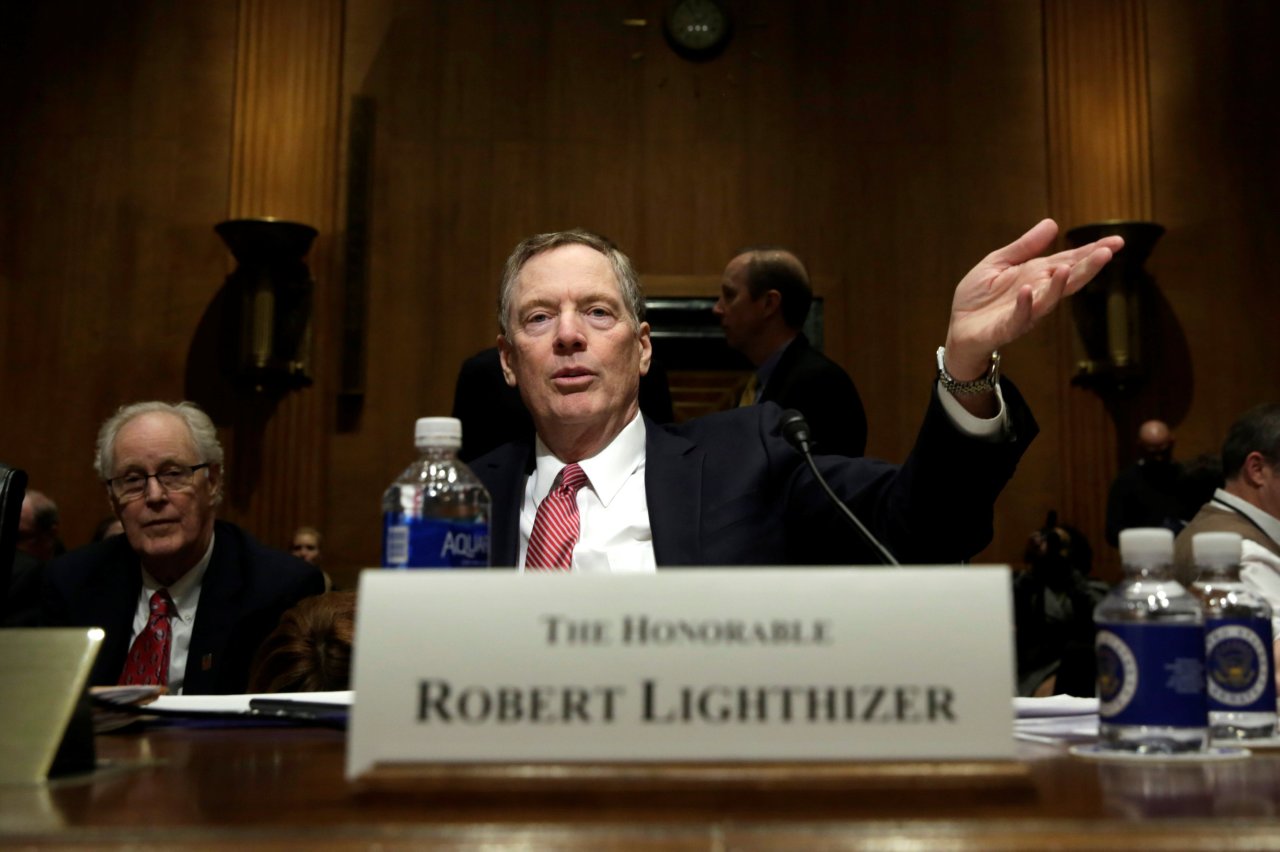RIO DE JANEIRO, BRAZIL – US Trade Representative Robert Lighthizer, on Wednesday, June 17th, told a US congressional committee that the United States does not intend to negotiate a free trade agreement with Brazil at this time. The statement makes it clear that trade negotiations with Brazil, with a pledge to sign a package of measures by the end of the year, are limited.

“We are now trying to solve specific problems with Brazil in order for the country to open up and create jobs for America. At the moment, we have no plans for an FTA (Free Trade Agreement) with Brazil,” Lighthizer said. The statement was a reply from the Trump government representative to Congresswoman Stephanie Murphy, a Democrat from Florida, regarding the negotiations with the Brazilian government.
The congresswoman was the only member of the opposition in the House Budget and Tax Affairs Committee who did not sign a letter to Lighthizer in which legislators said they opposed trade negotiations with Brazil. In a communication to Lighthizer, 24 legislators – including the president of the committee, Richard Neal – stated that President Jair Bolsonaro is “a leader who disregards the rule of law and has dismantled hard progress in civil, human, environmental and labor rights” in the country.
“I share my colleagues’ deep concerns about the direction and nature of the Brazilian government’s policies,” she stated. However, she said she had not signed the document because Brazil is Florida’s largest export partner.
The congresswoman wanted to know how the US will ensure that Brazil is committed to American values such as democratic state protection and labor and environmental guarantees, when reaching an agreement with the country. The Trump government’s trade representative simply said there is no free trade agreement on the table with Brazil at this time.
Agreement
After meeting with US President Trump in Mar-a-Lago, Florida, in March, President Jair Bolsonaro said he had taken “the first step toward a free trade agreement”. The term has also been mentioned by Trump, when talking about his friendship with the Brazilian President and relations with the country.
Regardless, officials from both countries have dodged the term “free trade” and emphasized that the goal is to work on a “trade facilitation” or “bilateral trade” package – an expression that has been used by Brazil’s ambassador in Washington, Nestor Forster, and in both countries’ announcements. The traditional concept of a free trade agreement encompasses tariff negotiations, which, as of last year, would not be discussed.
The Brazilian government has stated that the package under negotiation with the Americans will unblock red tape and ease trade on a broad scale, which will pave the way for a free trade agreement to be discussed in the future. However, for the US, Brazil is not at the center of its trade agenda. In an over four-hour session with congress members, Brazil was barely mentioned, and the existing negotiation was not listed by Lighthizer in his initial considerations.
Forster stated that it is “only natural that the term ‘free trade agreement’ has not been employed by Ambassador Lighthizer in congressional sessions, as this would imply practical consequences”, since the American government needs to notify Congress 60 days beforehand, when it intends to negotiate such an agreement. “That doesn’t mean it’s off the table for both countries,” Forster says.
Limited negotiations
At the opening of the meeting, the Chairman of the House Ways and Means Committee, Congressman Richard Neal, who sent the letter opposing the agreement, mentioned the discussions with Brazil. “The government is in limited negotiations with Brazil, and may consider limited digital trade negotiations with Brazil and other partners. You should know that many of my colleagues were not pleased with the lack of coordination and consultation in the limited agreements signed with Japan last year,” he said.
Under the United States Constitution, it is up to legislators to discuss the trade relationship with other countries. But the Trump administration has used loopholes and legislative exceptions to advance trade issues, and even to impose tariffs independently of legislators, which has angered the opposition.
In Brazil’s case, there is a focus of resistance between US Democratic Party legislators and the Bolsonaro government. The Democrats argued in their letter to Lighthizer that the Bolsonaro government “cannot be considered ready to take on new labor and environmental rights standards provided for in the US-Mexico-Canada agreement”.
The framework and conditions of the US agreement with its northern hemisphere neighbors, in the Nafta remodeling, is used as a framework for negotiations with Brazil. In his response to legislators, Forster wrote to the chairman of the Committee that legislators use “rather imprecise and incorrect” information about the Bolsonaro government.
Source: Estadão Conteúdo

